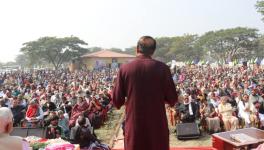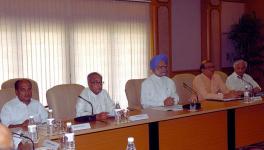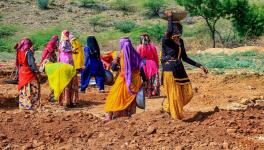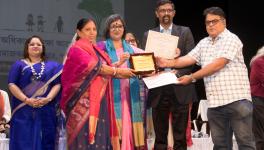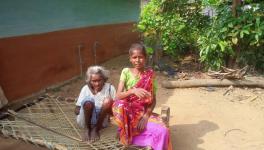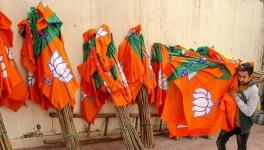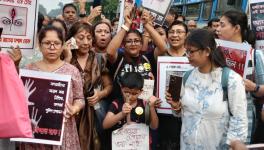Bengal: Grassroots Women Workers of Border Town Bongaon Want Jobs not ‘Alms’
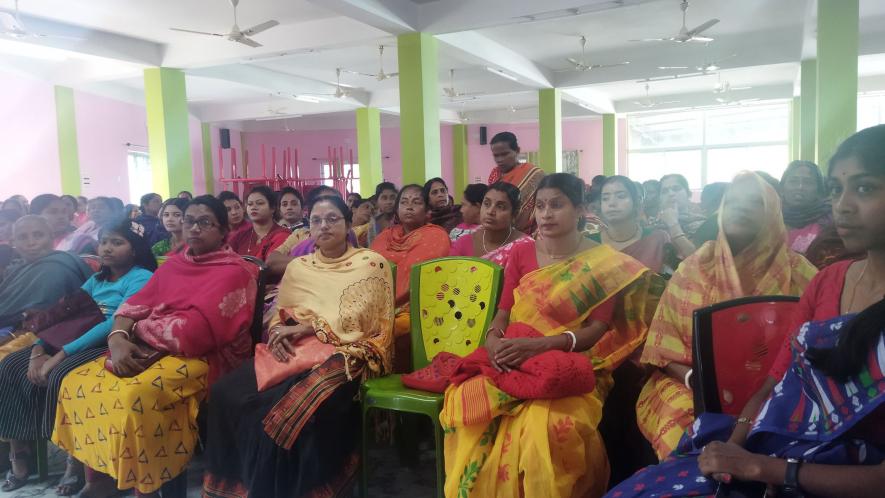
Kolkata: Anna Sarkar, 23, is a mother of two children and does menial jobs like plucking gourd flowers from the fields that fetch her only Rs 40 a day. She goes to the field at 5 a.m everyday and works till 12 o'clock to get this meagre wage, which is grossly inadequate to support her family. Her husband, a labourer, seldom gets work, with the 100-day rural job guarantee scheme, MGNREGA, completely at a halt due to non-release of funds by the Centre.
The family is struggling to survive as their previous wages are held up. “We are not beggars, we don’t need alms in the form of Laxmir Bhandar (the state government scheme under which Rs 500 is provided to each woman of a poor household in the state). We want work. We need at least Rs 10,000 to maintain our household at a bare minimum, which we don’t get even after working in the fields for long hours,” Sarkar said at a conclave of grassroot women held at Mandalpara of neighbouring Gaighata block of North 24 Parganas district.
She said “instead of creating job opportunities for us, there is now an ongoing quarrel between the Central and state government, which is holding up wage payments for MGNREGA.”
Hundreds of grassroot women, mostly from the dalit communities, from Bongaon town, located in the Indo-Bangla border, some 80 kilometres away from the capital city of Kolkata, came together recently and decided to adopt a 12- point declaration on what they want from political parties in the 2024 Lok Sabha elections.
The region is home to thousands of Matuas (a backward community with origins in Bangladesh who are now living on the fringes of various South Bengal towns). The community is mostly religious and devoted towards Harichand Guruchand Thakur and Boroma, their chief religious heads.
During erstwhile rule of the Left Front (prior to 2011) people of Bongaon and Gaighata and nearby Assembly segments kused to vote as per the state pattern, but now the diktat from the temple of late Boroma reigns supreme while voting.
The attempt by grassroot women is, therefore, being seen as a marked departure from this, according to political observers.
The 12-point charter of demands include ‘equal pay for equal work’, an end to illegal hooch trade in the area, immediate start of the 100-day work programme, new cards for bidi workers, creche arrangement for children of working women, minimum wage, workplace safety, separate residential quarters for divorcee women in all villages, immediate steps to stop child marriage, to address anomalies within the digital system among others.
The women in the conclave said their demand charter would be forwarded to the key political parties working in the region-- CPI(M), Congress, BJP and TMC, when their candidates come to seek votes during the Lok Sabha elections.
Tahamina Mondal, a firebrand social worker, who was the main organiser of the event along with a voluntary organisation, talked about her “helplessness” to come to aid of women victims of the illegal hooch trade that was growing in the area with “help from a section of the administration and the ruling party".
Mondal said during the earlier times (Left rule), she had the ability and power to resist the illegal hooch traders, but now even after repeated requests to the District Magistrate and Superintendent of Police, no police action is being taken to stop the illegal trade.
Recently, in the Kalupur area of Gaighata block, there was firing when women tried to resist the hooch traders. The police came and arrested the culprit but let him go after two days as the ruling party leaders went to the police station to get a reprieve for the criminal, she alleged.
Swati Bhattacharya, a journalist who was present at the event as a mentor, spoke on the plight of female workers’ exploitation in the area. She said that even with the 50% reservation for women in the village panchayats, the exploitation was continuing.
She also spoke on the need for creches for children of working women, a demand forwarded by Nishtha, a non- governmental organisation working in South24 Parganas district, and a participant in the conclave.
Shamita Baidya, 50, another grassroots worker, broke down in the podium while narrating her ordeal of facing neglect by the administration on the demand of providing land patta to about 200 families of Bagda area, where they have been living for the past 70 years.
“We have gone to the Sub-divisional Officer’s office, the Block Development Officer’s office and even to the DM’s office in Barasat, but even after countless visits, no positive answers were given by anyone. Though I am a ruling party worker and “managed” the polling process, they are also not helping us. Off the record they tell us that the patta, which amounts to crores, cannot be given, as big projects will come up on that land and make us homeless in near future,” she said, adding that “we are helpless and clueless about what to do at this juncture”.
Baidya, a tribal, who binds bidis, said they don't get the stipulated government rate of Rs 210 for binding 1,000 bidis, a tobacco product. “We get only Rs 165. Also, there's an enormous number of duplicate identity cards of bidi workers created by a coterie of ruling party workers. We don’t get the benefit of a medical dispensary that comes twice a month to our area. The 200-odd adivasi families of the region have also not got any land patta. We visited the Duare Sarkar project (the doorstep project of Mamata Banerjee government) and have given them details about of bastuu (residential plot ) but still no patta has been accorded to us.”
Kalpana Shil of Bongaon area, who also plucks flowers of pointed gourd and is paid Rs 60 a day on an average, said she had no penchant for any dole and wanted a job opportunity in the area where they could work and can earn Rs 15,000 a month, the amount needed to maintain a “dignified life”
“We want equal pay for equal work which is absent in the agricultural work in our state”, she said.
Bilasi Biswas of Bongaon said she lost MGNREGA work because of the Cente-state feud. She now works as an ‘aayah” in Kolkata. She said her housemaid work halted during the pandemic lockdown period. Sometimes during paddy sowing season, she works in the field for Rs 200 a day, while their male counterparts get over Rs 300 for the same work. Now she has taken to bidi binding work at home,
Kalyani Ghosh, who does menial jobs, spoke about her ue suffering due to her fingerprint not matching in the ration shops. As a result, she has to go without rations that are her “right”.
Nandita Baine, an ASHA (Accredited Social Health Activist) in Mandalpara subcentre of Gaighata block, their original assignment was caring mothers and children after child birth, but now they do tilling of vegetable and other agricultural produce in the market.
She raised the demand of getting dignity of being a government worker and not a “paid volunteer” that the government considers them.
Pragati Ghosh’s livelihood pattern tells the tale of her struggle for survival. She is engaged as a woman artisan who weaves jute fibre into hair locks and gets only Rs 30 for doing his work per day. She says getting paid Rs 30 per day is important for her, as the mahajans (their employers) do not give them work everyday. She said they do not want ‘alms’ from the government but decent means of livelihood.
Get the latest reports & analysis with people's perspective on Protests, movements & deep analytical videos, discussions of the current affairs in your Telegram app. Subscribe to NewsClick's Telegram channel & get Real-Time updates on stories, as they get published on our website.









